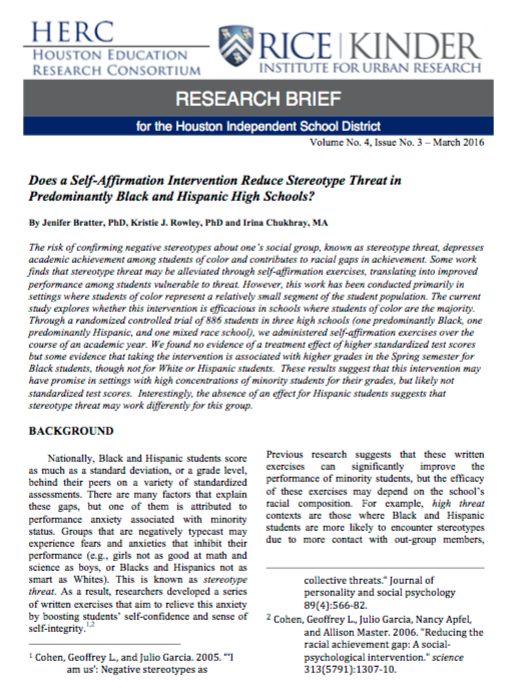The risk of confirming negative stereotypes about one’s social group, known as stereotype threat, depresses academic achievement among students of color and contributes to racial gaps in achievement. Some work finds that stereotype threat may be alleviated through self-affirmation exercises, translating into improved performance among students vulnerable to threat. However, this work has been conducted primarily in settings where students of color represent a relatively small segment of the student population. The current study explores whether this intervention is efficacious in schools where students of color are the majority. Through a randomized controlled trial of 886 students in three high schools (one predominantly Black, one predominantly Hispanic, and one mixed race school), we administered self-affirmation exercises over the course of an academic year. We found no evidence of a treatment effect of higher standardized test scores but some evidence that taking the intervention is associated with higher grades in the Spring semester for Black students, though not for White or Hispanic students. These results suggest that this intervention may have promise in settings with high concentrations of minority students for their grades, but likely not standardized test scores. Interestingly, the absence of an effect for Hispanic students suggests that stereotype threat may work differently for this group.
Does a Self-Affirmation Intervention Reduce Stereotype Threat in Predominantly Black and Hispanic High Schools?

This report looks at the effectiveness of interventions meant to combat negative stereotype threat in schools where students of color are the majority.
Body
Body
Body
Physical Address
Rice University
Kraft Hall
6100 Main Street, Suite 305
Houston, TX 77005-1892

